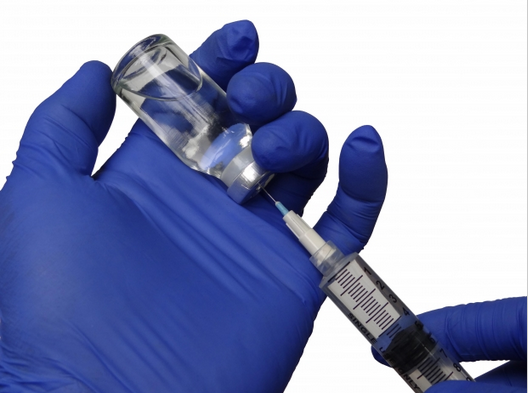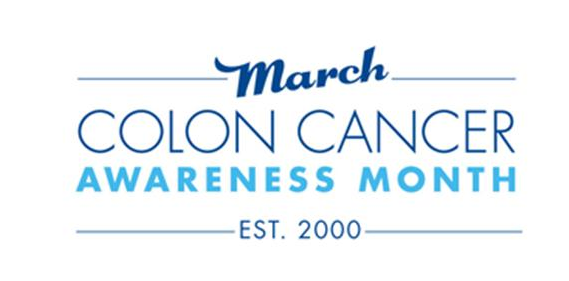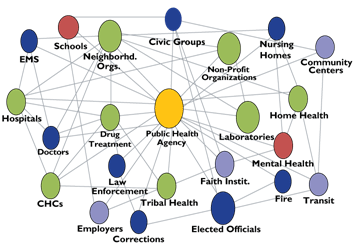Last Updated on August 7, 2020
Vaccines are a vital part of healthcare at all stages of life and offer the best protection available against many potentially devastating illnesses. The Centers for Disease Control and Prevention (CDC) encourages parents to follow an immunization schedule for babies and young children, protecting them from 14 life-affecting diseases. Pre-teens and teenagers should begin to innoculate against meningococcal diseases (meningitis or septicemia) and HPV (Human Papillomavirus, which can lead to cancer). Adults should continue to protect themselves with a yearly flu shot, tetanus updates, and later in life the shingles vaccine and the pneumonia vaccine.
An important element of immunization awareness is to protect our populations through “herd immunity” — when a high percentage of a population is vaccinated to protect individuals who have not developed an immunity. Babies are protected by their mother’s immune system at birth and continue to be passed antibodies from their mother’s breast milk; however, surrounding infants with people who have been vaccinated further protects them from serious diseases that they are too young to be vaccinated against. Some individuals may be allergic to certain vaccines, leaving them without the benefit of immunization and largely depending on herd immunity from the surrounding populations throughout their lives. Lastly, there are children and adults who are immunocompromised and shouldn’t be vaccinated.
No medicine can be considered 100% effective; the measles vaccine is 93-97% effective with one or two doses, respectively. Measles is so highly infectious that 90% of unvaccinated people who come close to an infected person will contract the virus. Being unvaccinated for infectious diseases is not only putting oneself in danger of serious illness and possibly death, but also the community at large.
Measles was declared eliminated from the United States in 2000, but that did not stop more than 1200 diagnoses being recorded in 2019 — the greatest number since 1992. The sharp rise in outbreaks is due to falling vaccination rates caused by the mass spread of misinformation, historical amnesia, and toxically individualistic attitudes that encourage people to reject expert advice or only follow it selectively. The prevailing myth has been that vaccines cause autism and other developmental conditions, sparked by a 1998 paper by a doctor who has since been discredited and stripped of his clinical license. There have been dozens of studies that refute the association between vaccines and autism, but they have done little to quiet those who repeat lies and misinformation.
Vaccine rates are continuing to fall even more due to the COVID-19 pandemic. Parents fearing the potential exposure from bringing their children to the doctor’s office are postponing well-child checkups, putting millions of children at risk of exposure to preventable deadly diseases. It is critical to ensure that routine vaccination is maintained during the COVID-19 pandemic in order to protect individuals and communities from vaccine-preventable diseases and outbreaks.
The ultimate goal of protecting the world’s population from the COVID-19 pandemic is to develop a vaccine against the novel coronavirus. Dr. Anthony Fauci, Director of the National Institute of Allergy and Infectious Diseases, has said the SARS-CoV-2 coronavirus “might keep coming back” year after year but noted, “We’ll be much better prepared. We’ll likely have interventions, but the ultimate game-changer in this will be a vaccine.” The World Health Organization (WHO) has launched an initiative to fast-track the development and scale-up of COVID-19 vaccines and make them available to nations who need them the most, while the Trump administration has said that there will be “no guarantee” that every American will be able to afford the COVID-19 vaccine once it is developed. Only when everyone can reliably be immunized against coronavirus could the world declare COVID-19 pandemic over.
More than 140 teams of researchers are racing to develop a safe and effective coronavirus vaccine, with only a few dozen progressing past pre-clinical trials. Vaccines normally require years of testing and additional time to produce at the necessary scale, but scientists are hoping to develop a coronavirus vaccine within 12 to 18 months. Some scientists, however, have concern over political pressure prematurely forcing a vaccine into production before this November’s election.
For those in need of assistance, our database of free, low-cost, and sliding-scale clinics has information on over 7500 clinics that offer immunization services. Search your ZIP code to find medical clinics near you that may offer free or low-cost immunizations. Pharmaceutical companies also offer Patient Assistance Programs (PAPs) such as Vaccine Patient Assistance Program. Call our toll-free helpline for more information at 1-800-503-6897 Monday through Friday 9am through 5pm Eastern Time.





